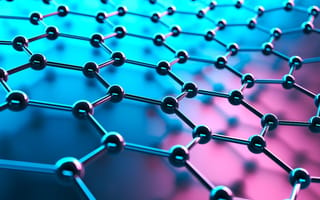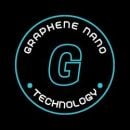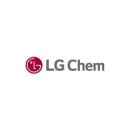Thanks to the advent of nanotechnology, engineers can now rearrange atoms and molecules within a given material to enhance its properties, or create an entirely new material altogether. These innovations — known as advanced materials — are pushing the boundaries of functionality and performance across a range of industries, including aerospace, healthcare and electronics.
Advanced materials have been around since the 1950s, when carbon fiber composites emerged as a top contender to lightweight aircraft components. Today, they hold the key to lightweight, longer-lasting batteries, which would affect virtually every tech sector, as well as biomedical breakthroughs, like tissue engineering and targeted drug delivery systems.
Top Advanced Materials Companies
- BASF
- Broadcom
- Samsung
- Nanosys
- STMicroelectronics
- Dow Inc.
- 3M
- Dupont
- Merck Group
What Are Advanced Materials?
Advanced materials are substances that have been engineered to exhibit specific properties. Often modified at the nanoscale, they undergo structural or chemical enhancements to improve performance or meet the demands of very specialized applications.
Typically, advanced materials include composites, nanomaterials, smart materials, biomaterials and high-performance metals — all of which have unique characteristics. Their capabilities range from increased strength and reduced weight to better conductivity and heightened resistance to extreme conditions like heat, wear or corrosion.
Types of Advanced Materials
Below are some of the most commonly used advanced materials today:
- Graphene: A single layer of carbon atoms arranged in a two-dimensional “honeycomb” lattice. Known for its exceptional strength, conductivity and flexibility, it is widely regarded as a major disruptor in battery technology.
- Carbon Nanotubes: Hollow, cylindrical structures made from carbon atoms that offer mechanical strength, electrical conductivity and heat resistance. It’s used in electronics, optics, nanotechnology and medicine.
- Silicon Carbide: A crystalline compound of silicon and carbon that has high thermal conductivity. It’s popular in power electronics — particularly in the automotive sector — due to its ability to handle high voltages and extreme temperatures.
- High-Temperature Alloys: Materials like titanium alloys or nickel-based superalloys, which maintain their structural integrity under extreme heat or stress.
- Smart Materials: Materials that respond to external stimuli, like temperature, light or pressure, with the ability to revert to their original state, such as shape-memory alloys and piezoelectric materials.
18 Advanced Materials Companies to Know
BASF is the largest chemical producer in the world. Headquartered in Germany, it’s known for creating advanced materials that are used in everything from automotive to electronics. The company works on developing polymers, nanomaterials and catalysts in order to extend the lifespan of products, making them more durable and sustainable.
Multinational company Broadcom develops semiconductors that support data centers, networking, broadband, wireless and industrial applications. Headquartered in California, its portfolio includes basic discrete components to complex subsystems with integrated firmware, serving uses in telecommunications, enterprise storage, consumer electronics and industrial automation.
Aside from making consumer electronics, Samsung develops advanced materials for semiconductors, displays and energy storage. Through Samsung SDI, the South Korean company focuses on high-purity chip materials, protective packaging and next-generation memory technologies. With advanced organic and inorganic materials, it also develops OLED and quantum dot displays, solid-state batteries and micro-LED technology.
Nanosys develops light-emitting quantum dot technologies, which are used in LED-LCD, OLED and micro-LED displays to deliver a wider color spectrum and enhanced brightness. The company’s technology is used in a wide variety of devices, including televisions, monitors, tablets and automotive interiors.
STMicroelectronics develops advanced semiconductor materials to enhance the performance, efficiency and durability of microelectronics and power devices. The Swiss company specializes in a wide range of materials, including silicon carbide and gallium nitride, which are used to improve energy efficiency in things like electric vehicles, industrial power systems and high-frequency communications. Additionally, STMicroelectronics engineers high-purity silicon, advanced packaging materials and MEMS (micro-electromechanical systems) — materials that are used to build sensors, microcontrollers and next-generation computing technologies.
Headquartered in Malaysia, Graphene Nanochem develops graphene nanomaterials for industrial applications, including energy storage, water treatment and specialty chemicals. Founded in 2006, the company engineers graphene-infused polymers, lubricants and coatings, which showcase the additive’s superior mechanical strength, as well as its conductivity and chemical resistance.
CVD Equipment Corporation specializes in chemical vapor deposition systems that help create advanced materials for semiconductors, solar cells and nanoelectronics. These systems help manufacture things like carbon nanotubes, nanowires, MEMS, LEDs and smart glass for use in both cutting-edge research and large-scale industrial production. Its equipment also makes custom solutions for advanced coatings, electronic components and circuit board assembly.
Renesas Electronics is a semiconductor company that develops microcontrollers, security operations center (SoC) solutions, power devices and LCD modules for industries like automotive, energy, healthcare and communications. Formed from the merger of NEC Electronics and Renesas Technology in 2010, the Tokyo-based company offers analogue and mixed-signal ICs, ASICs, RF devices and optoelectronics. It also provides development tools such as coding platforms, debugging systems and programming kits to support system integration and boost the overall performance of its products.
Universal Display Corporation (UDC) manufactures organic light-emitting diode materials for lighting and high-performance displays. The New Jersey-based company specializes in phosphorescent OLED — or PHOLED — materials, which outperform traditional fluorescent OLEDs used in applications such as smartphones, televisions and car displays. UDC also develops proprietary emitter and host materials to improve the longevity, color accuracy and power efficiency of next-generation OLED panels.
The Dow Chemical Company is the third largest chemical producer in the world. With a legacy that spans more than 125 years, the Michigan-based company develops polymers, composite materials and nanomaterials designed to perform under the toughest conditions, from industrial to aerospace applications. Dow is especially focused on materials that help reduce energy use and lower carbon footprints, such as their development of energy-efficient insulation materials, sustainable packaging and advanced water treatment technologies.
Multinational tech company 3M is known for its vast portfolio of advanced materials, which acquires about 3,000 new patents per year. From nano-coatings for energy-efficient surfaces to optical films for displays, the Minnesota-based company creates high-performance products used across industries such as healthcare, electronics and energy.
DuPont started out as a gunpowder supplier in 1802, and has since become a global name in advanced materials. Known for creating Kevlar and Teflon, the Delaware-based company develops an array of high-performance polymers, specialty chemicals, biobased solutions and protective coatings that support next-generation technologies, from electric vehicle batteries to flexible electronics and sustainable membranes for water filtration.
With more than 25,000 battery-related patents, LG Chem is a key player in battery technology, providing cutting-edge solutions like lithium-ion and solid-state batteries that power everything from electric vehicles to energy storage systems. LG Chem is also very involved in petrochemicals and OLED materials for displays, creating more efficient technologies for consumer goods and electronics.
Air Products and Chemicals specializes in materials used in semiconductor manufacturing, including ultra-high purity gases and those used for wafer cleaning and etching in order to make precise components found in everyday electronics. Founded in 1940, the Pennsylvania-based company also develops hydrogen storage and carbon capture systems, supporting cleaner energy distribution in industries such as power generation and transportation.
Merck Group is known for its groundbreaking work in both life sciences and advanced materials. In semiconductor manufacturing, the company develops specialized materials like photoresists and etching chemicals, which are crucial for photolithography and producing smaller, more powerful electronic devices. In biotech, Merck creates nanomaterials and biomaterials that are used to build medical devices and diagnostic solutions, including biodegradable implants, nanoparticle-based drug delivery systems and well-known medications Januvia, NuvaRing and Gardasil.
While Toyota is primarily known for manufacturing vehicles, Toyota Tsusho Corporation develops materials for the automotive and energy sectors, with a particular focus on rare earth elements and battery components. The company supplies materials for EV batteries, including lithium-ion and nickel-metal hydride, as well as semiconductor components and motor control systems, which contribute to the performance and efficiency of smart energy infrastructure and Toyota’s broader product line.
Sumitomo Chemical specializes in semiconductors, batteries and functional polymers. Headquartered in Tokyo, the company produces materials for semiconductor devices, like photoresists and wafer materials, as well as lithium-ion batteries and high-efficiency solar cells for energy storage. It also develops advanced polymer materials used in automotive components, OLED displays and high-performance coatings to enhance durability and efficiency of technology across various industries.
Hexcel Corporation produces carbon fiber, resin systems and honeycomb products. These materials are essential for industries like aerospace, automotive and wind energy, where performance, weight reduction and durability are critical. Its products enable manufacturers to create lightweight, high-strength components that improve fuel efficiency in planes, enhance the performance of electric vehicles and help produce cleaner energy alternatives in wind turbine blades.
Frequently Asked Questions
What are advanced materials?
Advanced materials are synthetic substances that have been engineered to exhibit novel or enhanced properties. They are crafted to be stronger, lighter or optimized for improved conductivity, magnetism or resistance to extreme temperatures.
What are the advanced materials categories?
The most common types of advanced materials include metals, polymers, ceramics, composites and nanomaterials.



















